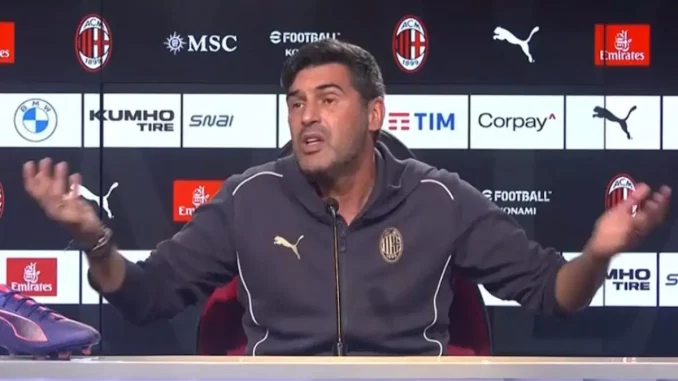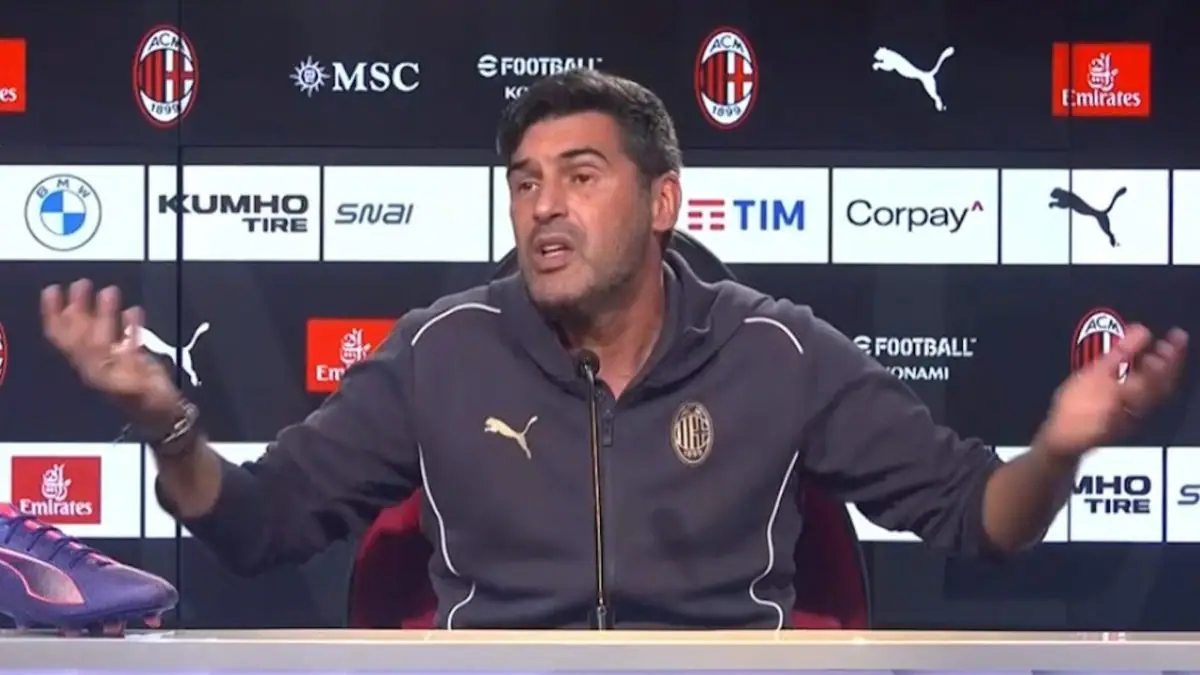
 In an inspiring move for aspiring coaches and sports enthusiasts, Paulo Fonseca, the highly regarded football manager known for his innovative tactics and leadership style, has announced the release of his new book, “How to Become a Successful Coach.” Scheduled to hit the shelves next month, the book promises to provide invaluable insights into the coaching profession, drawing from Fonseca’s extensive career in football, which spans various leagues and teams across Europe.
In an inspiring move for aspiring coaches and sports enthusiasts, Paulo Fonseca, the highly regarded football manager known for his innovative tactics and leadership style, has announced the release of his new book, “How to Become a Successful Coach.” Scheduled to hit the shelves next month, the book promises to provide invaluable insights into the coaching profession, drawing from Fonseca’s extensive career in football, which spans various leagues and teams across Europe.
Fonseca, who has managed clubs such as Porto, Braga, and most recently, AS Roma, has garnered a reputation for transforming teams through a combination of tactical acumen and motivational skills. His teams are known for their attacking style of play and adaptability, qualities that have not only earned him accolades but have also made him a sought-after figure in the world of football management. In his book, Fonseca aims to share the principles and philosophies that have guided his successful coaching journey.
In a recent interview, Fonseca expressed his motivation for writing the book. “Coaching is not just about tactics; it’s about understanding people, building relationships, and creating a winning culture,” he said. “I wanted to write something that could help new coaches navigate the complexities of the game while fostering their own unique styles.” His approach emphasizes that coaching is as much a psychological endeavor as it is a technical one, an insight he hopes to impart to readers.
The book is structured into several key sections, each focusing on different aspects of coaching. Fonseca covers topics ranging from developing a coaching philosophy to the importance of communication and teamwork. He begins with the foundational elements, encouraging aspiring coaches to reflect on their values and what they want to achieve in their careers. “Understanding your own coaching identity is the first step toward becoming successful,” he writes. This self-awareness, he argues, is crucial for building trust and credibility with players and staff.
One of the standout chapters, titled “Building Relationships,” delves into the interpersonal skills that are essential for effective coaching. Fonseca shares personal anecdotes from his career, highlighting how establishing rapport with players and staff has been instrumental in achieving team cohesion and success. He emphasizes that great coaches are not just strategists; they are also empathetic leaders who understand the unique motivations and challenges of their players. “Every player is different,” Fonseca notes. “Understanding their backgrounds, personalities, and motivations can make a significant difference in how you communicate and connect with them.”
Another crucial theme in the book is the importance of adaptability. Fonseca discusses how the landscape of football is constantly evolving, with new tactics, technologies, and training methods emerging regularly. He advocates for a growth mindset, encouraging coaches to embrace change and continually seek knowledge. “A successful coach must be willing to learn and adapt,” he states. “The game is always evolving, and so should we.” This message resonates particularly well in today’s fast-paced sports environment, where innovation can often set successful teams apart from their competitors.
Fonseca also addresses the role of failure in the journey of a coach. He candidly reflects on his own setbacks and challenges, illustrating how these experiences have shaped him. “Every failure is an opportunity for growth,” he asserts. “It’s essential to analyze what went wrong, learn from it, and use that knowledge to improve.” This perspective not only provides a realistic view of the coaching profession but also encourages resilience among aspiring coaches who may fear making mistakes.
A significant portion of the book is dedicated to the tactical side of coaching. Fonseca shares insights into his own tactical philosophies, offering readers a glimpse into the strategies that have brought him success on the pitch. He breaks down essential concepts such as formation, player roles, and game management, providing practical advice that can be applied at various levels of the game. “Tactics are important, but they should always serve the team’s overall philosophy,” he emphasizes. This balance between tactical knowledge and overarching vision is something Fonseca believes every successful coach must master.
Moreover, Fonseca highlights the importance of fostering a positive team culture. He discusses how a supportive environment can lead to better performance and overall satisfaction among players. “Creating a culture of trust and accountability is vital,” he explains. “When players feel valued and respected, they are more likely to give their all for the team.” This insight is particularly relevant in today’s sports landscape, where mental health and well-being have become increasingly important topics.
As the release date approaches, early reviews of “How to Become a Successful Coach” have been overwhelmingly positive. Many readers have praised Fonseca’s approachable writing style and the practicality of his advice. Coaches at various levels, from youth teams to professional clubs, have expressed enthusiasm about the book’s potential to guide them in their careers. “Paulo has a unique way of breaking down complex ideas into actionable steps,” one early reviewer noted. “It’s like having a mentor right by your side.”
Fonseca’s book is part of a growing trend among elite coaches and athletes who seek to share their experiences and insights with a broader audience. By writing about his journey, Fonseca aims to inspire the next generation of coaches, emphasizing that success in coaching is not solely defined by trophies but by the impact one has on players’ lives.
In addition to the book, Fonseca plans to host a series of workshops and webinars aimed at aspiring coaches. These sessions will provide a platform for deeper discussions on the themes presented in the book, offering participants the chance to engage directly with Fonseca and gain practical knowledge applicable to their coaching journeys.
As “How to Become a Successful Coach” prepares for its release, Paulo Fonseca stands poised to make a significant impact on the coaching community. His commitment to sharing his knowledge and experiences reflects a broader desire to elevate the profession and inspire others to pursue their coaching dreams. With his rich background and a passion for developing talent, Fonseca’s book is set to become an essential resource for anyone looking to make their mark in the world of coaching, making it a must-read for both aspiring and established coaches alike.
Leave a Reply